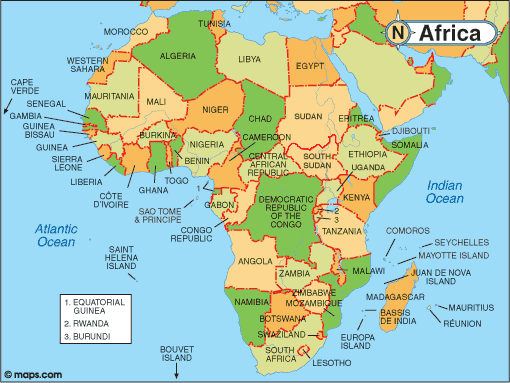
mapAfrica
African airline leaders see imminent risk in the EU airline industry carbon transition plan starting in 2025 and want concessions that defer implementation. But with some voices suggesting penalties on the larger Western legacy carriers to fund the African transition, it will be a tough conversation: African carriers on a collision course with the EU over the 2025 SAF mandate. SAF is starting to attract a lot of attention across the aviation industry.

“We have to be honest, in Africa, we will not be ready to start the transition to SAF by 2025. I think 2030 is a more realistic target,” Ethiopian Airlines chief executive Mesfin Tasew told AirInsight on the sidelines of the IATA Focus Africa conference in Addis last month.
African carriers are set on a potential collision course with European Union regulators as they sense headwinds in a Sustainable Aviation Fuels (SAF) blending mandate that is set to come into force at the start of 2025. The mandate requires fuel suppliers at EU airports to ensure that starting in 2025, two percent of fuel made available at EU airports is SAF. The blend will rise to 6 percent in 2030 and 20 percent in 2035 before hitting 70 percent in 2050.
From a spike in operating costs to fleet planning, African airline leaders see an existential threat if not granted concessions in the industry’s carbon transition. The region does not have the capacity to produce SAF, and even conventional jet fuel is 30 percent more expensive on average.
“To be compliant, African airlines would have to tanker SAF. That is an additional cost even before you factor in the fact that SAF costs three to four times more,” Mesfin added.
‘Nobody has the money to purchase SAF’
Kenya Airways CEO Allan Kilavuka reinforced his statement from days earlier in Nairobi, saying the region would seek subsidies or outright exemptions before participating in the EU mandate. “African airlines are still struggling with many issues, and nobody has the money to purchase SAF at this point in time. If we are going to use SAF, which is 4-7 times more expensive than jet fuel, we are going to need subsidies,” Kilavuka said.
The EU provides 2 billion euros in funding from the EU carbon market to help airlines switch to SAF. Still, it was not immediately clear if non-EU domiciled carriers would be eligible.
Speaking at AviaDev Africa on June 15, Kilavuka said the big polluters operating fleets numbering hundreds of aircraft should pay for their contribution to emissions. “There are airlines that are flying 800 aircraft while we are flying 40-50 or even just ten aircraft. Can we get subsidies because we don’t have scale,” Kilavuka asks?
Collectively, the airline industry contributes 2 percent to global emissions. Representing only 2 percent of global traffic, emissions by African airlines are estimated at only 0.008 percent of industry emissions.
Already stretched by above-average prices for fuel, taxes, and infrastructure charges, airfares in Africa are already too high. Any further increases, for whatever reason, will stifle ongoing efforts to boost6 traffic, airline leaders warn.
“Africa’s aviation needs to grow from the current 2 percent of global passenger demand to a level that is commensurate with its 18 percent share of the global population. We are not going to grow it if we increase the cost of travel. We are going to do everything we can to drive sustainability, but we should never do that at the expense of growth,” Kilavuka argues.
TAAG Angola’s Eduardo Fairen says that for African airlines, survival precedes sustainability. “The first thing to be sustainable is to stay alive. If the airlines don’t exist, then we have nothing to talk about. Even though everybody shares the same goal about the carbon transition, the first question should be, is this survivable? My guess is that it will be extremely difficult if certain conditions are not addressed properly, among them proper finance, access to new machines, coordination, and infrastructure,” he said during a panel discussion at AviaDev Africa.
Fairen explained that from a purely economic point of view, one of the first things African airlines should be doing is proper fleet management and fleet planning because the cost of ownership is killing all airlines. “We need to find solutions, and because not a single airline can do this on its own, we need a common solution, and then we can be in a position to afford the sustainability.”
Transitioning to newer fleets also difficult
The region’s carriers also face hurdles in transitioning to newer fleets, he observed. Delivery slots of modern aircraft are sold out beyond 2030. Airlines seeking to ditch older fuel guzzlers are hostage to lessors, potentially exposing them to higher finance costs.
“If we need 1000 aircraft here, where are they going to come from? We will probably be left with no choice but to operate secondhand aircraft with old engines burning fuel and polluting. We have to be very pragmatic and objective about the technological limits we have today and objectives that we can afford,” he said, hinting at the need for a longer transition period for Africa.
Jenifer Bamuturaki, the Uganda Airlines chief executive and incumbent chairperson of the African Airlines Association (AFRAA), says developments such as the EU SAF mandate represent a legal-political threat that African airlines must tackle jointly. “This is going to affect many things – we are still growing; losses are high, and you are still trying to recover. It is necessary to raise our collective voice and be politically represented because we have an African reality that is not the same reality as the rest of the world,” she said.
Fairen adds that without concessions and with the EU deadline so close, with African airlines subjected to a timeline they were not involved in setting, there is a real danger that half of the African airline industry will not survive the carbon transition.
Views: 44




